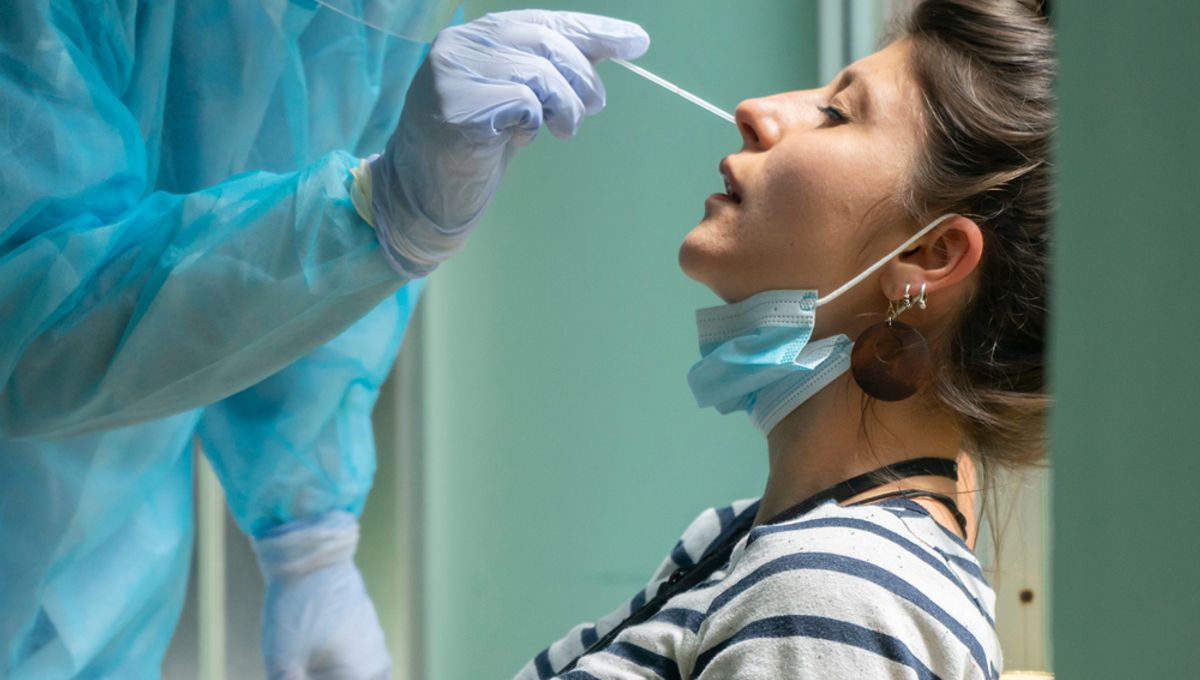
COVID-19 has infected over 600 million people (as of September 13) in practically every patch of the planet. Yet still, somehow, some people have managed to avoid the virus. That might include health carers who spent months surrounded by infected patients or even just people who have shared a bed with a sick partner. If you are one of these so-called “super-dodgers,” then scientists may want to hear from you.
We have a rough idea of how many people have been infected by COVID-19 in the US through antibody seroprevalence, which detects whether a person has developed antibodies against SARS-CoV-2 from infection.
As of September 13, samples taken from commercial labs in the US suggest at least 57.7 percent of people have been infected by SARS-CoV-2 at least once. For those under 18, the seroprevalence is thought to be even higher, roughly around 79 percent.
So, how has a significant portion of the population seemingly dodged the infection so far?
First up, there’s a good chance that people who believe they’ve never had COVID-19 have unknowingly experienced an asymptomatic infection. Researchers think that’s a lot more common than most people realize.
Secondly, there could be a genetic factor at play. Ever since the early days of the pandemic, it became clear that COVID-19 can make some people extremely sick, while others experience a flu-like illness and some barely notice any symptoms. This is thought to be influenced by a variety of reasons, but a key factor is likely to be genetics.
A large international study discovered 13 locations in the human genome that appear to be linked to the susceptibility and severity of a COVID-19 infection. Curiously, they also found overlaps between variants that both increase the risk for severe COVID-19 and other diseases, such as lung cancer and pulmonary disease.
Another piece of research found that severe COVID likely has a strong genetic cause in nearly 20 percent of cases. Conversely, it’s also been suggested that people with a certain gene – dubbed HLA-B*15:0 – are significantly more likely to experience an asymptomatic COVID-19 infection.
However, even people who experience asymptomatic COVID-19 still have detectable antibodies from the infection. Could it be that some people are just naturally immune from COVID-19 while remaining seronegative for antibodies?
It’s a possibility. A team of scientists has banded together to form the COVID Human Genetic Effort in a bid to understand how the genetic underpinnings of our immune system influence COVID-19. They’re particularly keen to get in touch with people who still do not have antibodies to SARS-CoV-2 despite “intense and repeated” exposure to COVID-19.
Through studying these people who are seemingly resistant to infection, the researchers believe they could gain some invaluable knowledge about tackling this ongoing global pandemic.
“This discovery will allow us to develop new ways to combat this pandemic: through better and faster diagnosis, new drugs for the treatment and prevention of infection, new ways to develop a vaccine, and a better understanding of how this infection works in the body,” the COVID Human Genetic Effort team say on their website.
“To accomplish all of this, we need your help. Urgently.”
Source Link: Are You A COVID "Super-Dodger?" Then Scientists Want To Hear From You